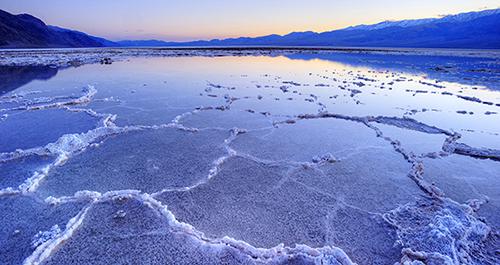What do you think about environmental impact of lithium ion batteries?
Jul 23, 2019 Pageview:1523
Lithium-ion batteries have become quite common these days. These batteries are now being used in most modern electronics. Even energy storage systems and electric vehicles are powered by lithium-ion batteries. Owing to technological advancements, the lithium-ion batteries do not only have high energy density but have also become more affordable. Furthermore, these batteries have played a pivotal role in the transitioning of the electrical and transportation sectors from fossil fuels to renewable energy.
Thus, it is apparent that lithium-ion batteries hold a great deal of importance in the current times. However, one must wonder about the impact these cells have on the environment. Let us shed some light on this.
Is the lithium-ion battery environmentally friendly?
Lithium-ion cells are not exactly what can be called the perfect green technology. A lot of progress and improvement is required in both the mining and the recycling processes that are part of the production of these cells.
However, it is vital to understand that when compared to their alternative, that is fossil fuels, these batteries have quite a lot of environmental benefits to offer. As more people switch to electric vehicles, carbon emissions can be reduced significantly. These cells pave the way for the use of intermittent renewable energy, which reduces our dependency on the coal plants, which are not only a significant source of pollution but are also somewhat inefficient.
Homeowners also find this to be a reliable option. They can use solar panels and home energy storage systems for storing the energy produced. Thus, they would not have to pay high electricity bills and can continue to use energy even after the sun goes down.
How do lithium batteries affect the environment?
It is widely believed that Salar de Uyuni in Northern Chile and southern Bolivia has the largest deposits of lithium. According to estimations, more than two-thirds of the total lithium supplies in the entire world are present in the Bolivian Andes mountain range, as has been explained by some experts. As a result, the region has undergone intense and extensive drilling operations in recent years.
The demand for lithium has increased significantly in the past few years as governments of different countries are looking to switch to electric vehicles to reduce pollution. Thus, the price of lithium is witnessing an upward trend which is not expected to be changed anytime soon since the global demand for the element continues to rise. Thus, Bolivia has the opportunity of leveraging this to get rid of their developing status.
However, the problem is that the process of extracting lithium has an adverse effect on the environment. The climate in Salar De Uyuni is quite dry. Thus, nearly 500,000 gallons of water are required for producing merely a ton of lithium. Therefore, farmers are deprived of water in nearby regions, which impacts their cultivation and livestock.
Furthermore, the chemicals used during the process of extracting of lithium can make its way to the nearby rivers, infiltrating the water supplies. This had occurred in the past in 2016 when a river in Tibet was contaminated owing to the mining operations, and as a result, numerous fish died, and cattle and yak were poisoned.
River monitoring solutions can minimize this risk. However, you cannot eliminate them entirely. In some regions, lithium is not mined from under the ground, and instead rock is used. However, chemicals still play a crucial role in the whole process. According to reports, fish up to 150 miles away have been affected by the lithium mine in Nevada.
Thus, environmentalists have called on researchers to think of some other ways of powering the batteries which would be less invasive.
Environmental impact of battery production and disposal
The effect of battery production and disposal is significant. For one thing, these cells undergo photochemical reaction while decomposing in the landfills. As a result, greenhouse gases are emitted. This leads to global warming and changes in climate.
The chemicals in the cells can infiltrate the river and water supply, which can lead to the death of the plants and animals, negatively affecting the ecosystem of the rivers and lakes. Furthermore, people who drink this contaminated water are also at serious health risks. Eating fish from these polluted waters can also have a negative impact on health.
Batteries usually end up in landfills and are seldom disposed of properly. The soil can absorb the toxic chemicals present in these cells. When they leak into the nearby areas, the impact can be quite detrimental.
To minimize these effects, it is vital that the lithium-ion batteries are appropriately disposed and everyone needs to play a role in this. First of all, gather all the batteries that need to be eliminated. Our houses are filled with electronics that use these batteries. Get all the cells which are no longer usable together. Every region has a place that collects lithium-ion cells for recycling. You can search online for such a center in your locality. Find a retailer who collects these cells.
Once you find the place, call them, and get information on how you can bring them the batteries. Find out the location where they collect the batteries and if there is anything else that you should know before you drop off the cells.
All the individual batteries have to be placed inside a plastic bag. Only one battery should be present in each bag. This step can be done either at home, or you can do it at the place where you find the plastic bags. If you are unable to find plastic bags, you can also cover the cells with duct, or electrical tape. You can then bring the batteries to the collection site so that they can be recycled and thus not harm the environment.
There is no denying that lithium-ion batteries offer a great deal of convenience. However, you need to make sure that the risks associated with these cells with regards to the environment are minimized.
- Prev Article: What do you know about lithium battery poisoning symptoms?
- Next Article: Are Lithium ion Batteries Safe?
Leave Message
Hottest Categories
-
Hottest Industry News
-
Latest Industry News











